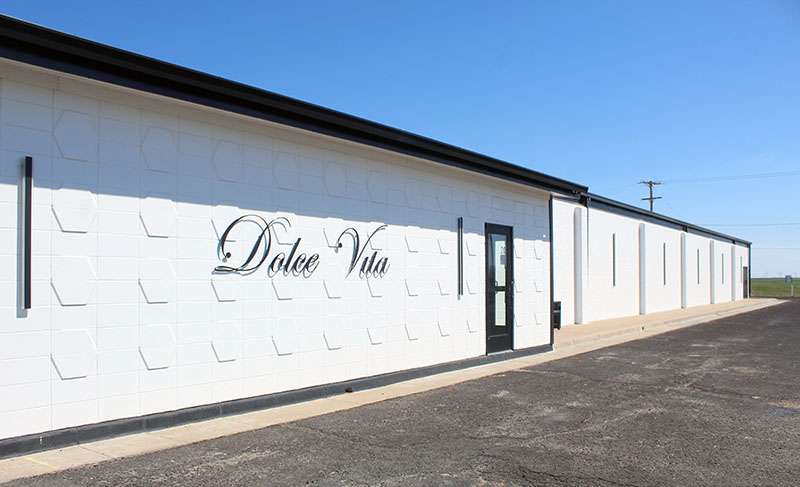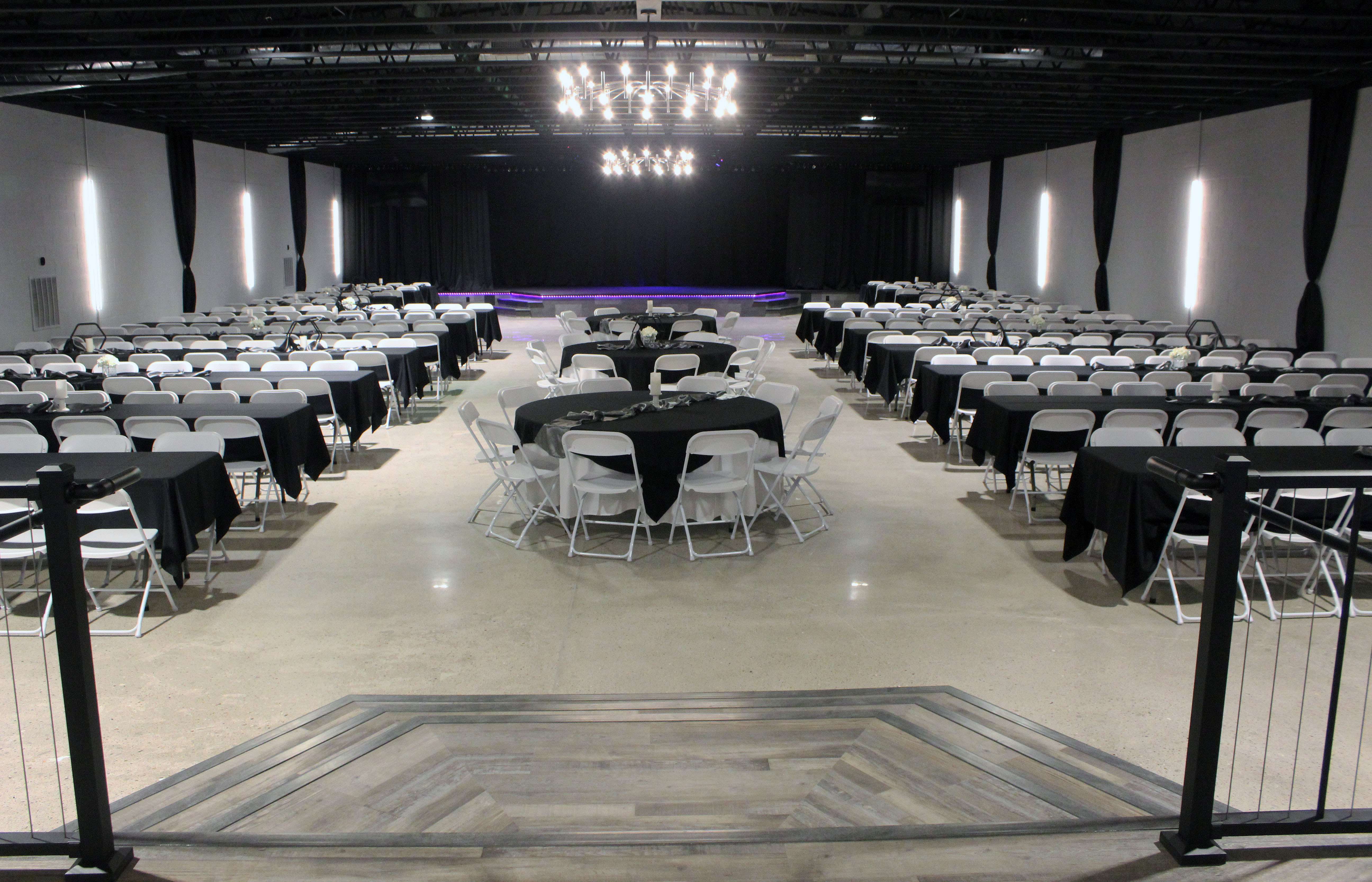
By TONY GUERRERO
Hays Post
Ellen Riedel of Ellis and her husband transformed a long-vacant building into an event venue to breathe new life into town, but now she says they were hit with a tax bill that almost quadrupled overnight.
Dolce Vita, 203 E. Second St., has become a modern venue for weddings, corporate events, reunions and other community gatherings.
"Rather than just driving by this eyesore day after day, we purchased and invested in the property to give this community some pride," Riedel said.
However, Riedel said after investing in repairs, including new wiring, plumbing and roofing, their property taxes increased from $3,510 to $20,810, about a 492% increase.

In addition, the venue has two wet bars, a catering kitchen, and a 15-by-50-foot state-of-the-art sound and lighting system.
Riedel said Sen. Caryn Tyson, a Parker Republican, reached out to inform her about Senate Bill 13. Ridel said she appealed the assessment to the county appraiser, who determined that her improvements did not qualify as maintenance. She added that the valuation dropped slightly before increasing again.
The bill states that it prohibits an increase in the appraised property value resulting from regular repair, replacement, or maintenance of existing structures, equipment, or other improvements on the property.
"Everything is supposed to remain revenue neutral, but our property taxes continue to skyrocket out of control," she said.
On Oct. 13, Riedel addressed the Kansas Special Committee on Taxation, saying she has heard from many Kansas taxpayers who feel overwhelmed by rising property taxes.
Riedel and her husband purchased the roughly 10,000-square-foot building in 2022 after it had remained empty for two decades, saying that she has not given up on the city of Ellis and its population of about 1,900.
"My husband turned it into a beautiful venue, and what was our reward? Massive tax increases," she said.
Riedel said commercial and residential properties should be distinguished, as both generate property tax revenue. However, commercial properties also generate sales and employment taxes. She suggested placing a lower cap on valuation increases for commercial properties.
Riedel told Hays Post property owners are caught in a game of finger-pointing between county officials and mill levies. She is pushing for a statewide 3% cap on property valuation increases.
Riedel also said Senate Bill 13 needs stronger enforcement and that counties should be held accountable for “breaking the law.”
"Protect community revitalization rather than punishing people for improving their properties," she said to the committee.
Riedel said that residential valuations in Ellis County increased, citing CEO Dave Trabert of the Kansas Policy Institute, a conservative-leaning think tank that provides non-profit research.
"I promise you the voters in your counties are going to be slapping you high fives, patting you on the back, and you are going to be heroes," Riedel said to the committee. "I know that you can change our lives by implementing tax reform."
Riedel referred to Oklahoma as evidence that limiting annual property valuation increases can be effective.
Oklahoma attorney Wayne Allison told Topeka lawmakers his state limits annual valuation increases to 3% for homestead and agricultural properties and 5% for commercial properties, with any revenue hikes requiring voter approval.
Allison said the caps did not hurt local funding and Oklahoma relies more on sales tax to fund operations.
Riedel also raised concerns with the committee that seniors are being taxed out of their homes because property taxes now exceed their former mortgage payments. She also pushed for a 100% exemption for qualifying veterans.
Sedgwick County Commissioner Jeff Blubaugh also testified that Kansas’s property valuation system is inconsistent and flawed, drawing on his own experiences to support his statement.






